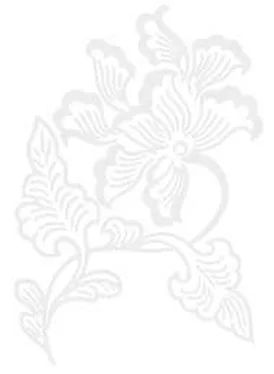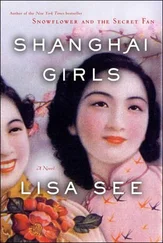Lisa See - Peony in Love
Здесь есть возможность читать онлайн «Lisa See - Peony in Love» весь текст электронной книги совершенно бесплатно (целиком полную версию без сокращений). В некоторых случаях можно слушать аудио, скачать через торрент в формате fb2 и присутствует краткое содержание. Жанр: Старинная литература, на английском языке. Описание произведения, (предисловие) а так же отзывы посетителей доступны на портале библиотеки ЛибКат.
- Название:Peony in Love
- Автор:
- Жанр:
- Год:неизвестен
- ISBN:нет данных
- Рейтинг книги:4 / 5. Голосов: 1
-
Избранное:Добавить в избранное
- Отзывы:
-
Ваша оценка:
- 80
- 1
- 2
- 3
- 4
- 5
Peony in Love: краткое содержание, описание и аннотация
Предлагаем к чтению аннотацию, описание, краткое содержание или предисловие (зависит от того, что написал сам автор книги «Peony in Love»). Если вы не нашли необходимую информацию о книге — напишите в комментариях, мы постараемся отыскать её.
Peony in Love — читать онлайн бесплатно полную книгу (весь текст) целиком
Ниже представлен текст книги, разбитый по страницам. Система сохранения места последней прочитанной страницы, позволяет с удобством читать онлайн бесплатно книгу «Peony in Love», без необходимости каждый раз заново искать на чём Вы остановились. Поставьте закладку, и сможете в любой момент перейти на страницу, на которой закончили чтение.
Интервал:
Закладка:
I went to the shelves and selected the best collections of poetry, history, myth, and religion I could find. I made three trips to my room to drop them off. I came back to the library and sat for a few minutes on the edge of Baba’s daybed to think if there was anything else I might want. I chose another three books from a stack in the corner, and then I left the library and made my way back to my room. I entered, and this time I closed the door of my own accord.
( 7 8 )

Jade Shattering
i spe nt th e ne xt month p ori ng ove r eac h of th e twelve editions of The Peony Pavilion I’d collected and transcrib-ing all the notes I’d ever written in those copies into the margins of Tang Xianzu’s original two-volume edition my future sister-in-law had sent me. Once I finished that, I gathered my father’s books around me and looked through them until, after another month, I’d identified all but three of the original authors of the pastiches in Volume One and most of those in Volume Two. I didn’t explain terms or allusions, comment on the music or performance, or try to compare The Peony Pavilion to other operas. I wrote in tiny characters, packing them tightly between the lines of the text.
I didn’t leave my room. I allowed Shao to wash and dress me, but I turned away from the food she brought. I wasn’t hungry; being light-headed seemed to make me think and write more clearly. When my aunts or cousins came to invite me to take a walk in the garden or join them for tea and dumplings in the Spring Pavilion, I graciously thanked them but said no. Not surprisingly, my attitude did not agree with my mother. I didn’t tell her what I was doing and she didn’t ask. “You cannot learn to be a good wife by hiding in your room with your father’s books,” she said.
“Come to the Spring Pavilion. Have breakfast and listen to your aunts.
Come for lunch and learn how to treat your husband’s concubines. Join us at dinner and perfect your conversation.”
( 7 9 )
Suddenly everyone wanted me to have a meal, but for years my mother had told me to beware of becoming chubby like Broom and to eat little so I would be slim at my wedding. But how can you eat anyway when you’re in love? Every girl has this experience. Every girl knows this is so. My heart was dreaming of my poet, my head was filled with this project that I was sure would protect me in my married loneliness, and my stomach? It was empty and I didn’t care.
I began to stay in bed. All day I read from the two volumes. All night I read by the flickering light of the oil lamp. The more I read, the more I began to think about the small links that Tang Xianzu had used to create a deeper whole. I pondered the key moments in the opera, the foreshadow-ing, the special motifs, and how every word and action illuminated the one thing I was obsessed with: love.
The plum tree, for example, was an arbor of life and love. It was the place where Liniang and Mengmei first met, where she would be buried, and where he would bring her back to life. In the very first scene, Mengmei changed his name because of a dream, becoming Dream of Plum. But the tree also evoked Liniang, for plum blossoms are delicate, ethereal, almost virginal in their beauty. When a girl falls into marriage, she exhales her beauty and loses forever her romantic image. She still has many obligations to fulfill—giving birth to sons, honoring her husband’s ancestors, becoming a chaste widow—but she has already begun her glide into death.
I pulled out my ink, ground it into the inkstone, added water, and then in my finest hand wrote my thoughts in the upper margin of Volume One: Most of those who grieve over spring are especially moved by fallen blossoms, as I was when I last walked in our garden. Liniang sees the petals and understands that her youth and her beauty are fleeting. She doesn’t know that her life is frail too.
What had always captured my imagination about the opera was its por-trayal of romantic love, which was so different from the arranged loveless marriages that I’d grown up with in the Chen Family Villa or the one I was going to. To me, qing was noble, the highest ambition a man or woman could have. Although my experience of it was limited to three nights under the light of the quarter moon, I believed it gave meaning to life.
Everything begins with love. For Liniang, it begins with her tour of the garden, then her dream, and it never ends.
( 8 0 )
Liniang’s ghost and Mengmei enjoyed clouds and rain. They were both so honest in their love for each other—as my poet and I were—that this was not some ugly thing between a concubine and a man.
Theirs is a purely divine love. Liniang always behaves like a lady.
As I wrote this, I thought of myself on the last night in the Moon-Viewing Pavilion.
I wrote about dreams—Liniang’s, Mengmei’s, and my own. I also thought about Liniang’s self-portrait and compared it to what I was doing with my project. In the upper margin, I wrote in my finest hand: A painting is form without shadow or reflection, just as a dream is shadow or reflection without form. A painting is like a shadow without a frame. It is even more of an illusion than a dream.
Shadows, dreams, reflections in mirrors and ponds, even memories were insubstantial and fleeting, but were they any less real? They weren’t to me.
I dipped my brush in the ink, smoothed off the excess, and wrote: Du Liniang sought pleasure in a dream; Liu Mengmei sought a mate in a painting. If you don’t consider such things illusion, then illusion will become real.
I worked so hard and ate so little that I began to doubt I had ever met a stranger in the Riding-the-Wind Pavilion for two nights. Had the poet and I actually left the Moon-Viewing Pavilion to walk along the lakeshore?
Was all that a dream or real? It had to be real, and very shortly I would be sent into a marriage with someone I did not love.
When Liniang goes to the library, she passes by a window and wants to fly out to meet her lover. Naturally, she is too afraid to do so.
Tears came to my eyes, rolled down my cheeks, and fell onto the paper as I wrote this.
Visions of love consumed me. What little appetite that had survived my first confinement left me completely. Xiaoqing used to drink half a cup of pear juice each day; I took only a few sips. Not eating stopped being about maintaining control over my life. It even stopped being about my poet and ( 8 1 )
the tumultuous feelings of love and longing I felt were consuming me.
One of the sages once wrote: Only when you are suffering in extremity will the poetry you write be any good. Gu Ruopu, the great woman poet, responded to this when she commented: Officials and scholars will engrave their very flesh and carve into bone, turning white-haired and using up their lives contriving to produce dark and melancholy lines.
I traveled to a place deep within myself where everything worldly was stripped away and I felt only emotion: love, regret, longing, hope. I sat propped up in bed, wearing my favorite gown with the pair of mandarin ducks flying above flowers and butterflies, and allowed my mind to travel to the Peony Pavilion. Had Liniang’s dreams compromised her chastity?
Had my dreams—my wandering in our family garden—compromised my own? Was I no longer pure because I’d met a stranger and let him touch me with the petals of a peony?
wh i le i f eve ri sh ly wrote, wedding preparations swirled around me.
One day a seamstress put me into my wedding costume and then took it away to make it smaller. Another day Mama arrived with my aunts. I was in bed, my books spread about me on the silk coverlet. They had smiles on their faces, but they weren’t happy.
Читать дальшеИнтервал:
Закладка:
Похожие книги на «Peony in Love»
Представляем Вашему вниманию похожие книги на «Peony in Love» списком для выбора. Мы отобрали схожую по названию и смыслу литературу в надежде предоставить читателям больше вариантов отыскать новые, интересные, ещё непрочитанные произведения.
Обсуждение, отзывы о книге «Peony in Love» и просто собственные мнения читателей. Оставьте ваши комментарии, напишите, что Вы думаете о произведении, его смысле или главных героях. Укажите что конкретно понравилось, а что нет, и почему Вы так считаете.












